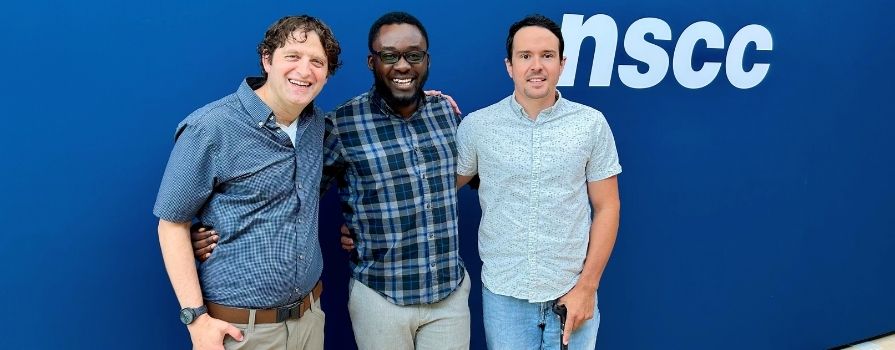NSCC commits to a more inclusive future with Dimensions Canada

Nova Scotia Community College (NSCC) has been selected as 1 of only 18 post-secondary institutions and just 1 of 5 colleges across Canada to take part in the Dimensions Canada, a national program led by Natural Sciences and Engineering Research Council of Canada (NSERC) that helps make research and learning environments more equitable, inclusive and welcoming for everyone.
This selection marks an important milestone in NSCC’s ongoing journey to embed equity, diversity and inclusion (EDI) into everything we do. Participating in the Dimensions Program launches a multi-stage process toward national recognition, and, more importantly, deepens our commitment to lasting, meaningful change.
Over the next year, NSCC will take part in a structured process to work toward Dimensions recognition. This will include series of collaborative workshops with the Natural Sciences and Engineering Research Council of Canada (NSERC), as well as an inclusive self-assessment led by a diverse team of students, faculty and staff from across the college. The goal is to better understand where NSCC is now, where it can grow, and how it can continue to create an equitable and inclusive environment for all.
Why NSCC?
This national-level participation builds on years of intentional work to make equity and inclusion a cornerstone of the college’s culture, from leadership to classrooms, research labs to student services. NSCC is actively building a community where everyone feels they belong.
For Jill Provoe, Vice President of Equity and International, this work is deeply personal. “When we say, ‘belonging starts with us,’ we mean it,” she says. “This milestone reflects the voices, stories and leadership of so many students and staff who’ve helped shape a more inclusive NSCC. It’s their courage and commitment that brought us here.”
Here are just a few reasons why NSCC was selected to participate:
- Strategic leadership: Senior leaders have played a key role in shaping national conversations on EDI.
- Support for equity-deserving groups: The college has introduced targeted bursaries and awards for Indigenous and Mi’kmaq, Black and African Nova Scotian students, as well as members of 2SLGBTQ+ and disability communities.
- Data-driven action: NSCC collects and uses data to understand barriers and track progress, ensuring that programs are grounded in lived experience.
- Campus-wide engagement: A Self-Assessment Team (SAT), with broad representation across the college, will guide the development of a new institutional EDI action plan to ensure change is both collaborative and sustainable.
NSCC’s Director of Applied Research, Alain Joseph, sees this recognition as both a validation and a motivator. “Being selected by Dimensions Canada affirms the work we’ve done, and the work still ahead,” he says. “At NSCC, equity is central to how we approach research—it shapes who we are and how we serve our partners and students.”
Inclusion research in action
That commitment to equity is more than a principle; it’s embedded in how NSCC’s Applied Research team operates. The department has developed an internal EDI Action Plan to ensure research is not only academically rigorous but also inclusive, accessible and responsive to the needs of real communities. Projects are designed in close collaboration with equity-deserving groups, with community voices at the centre of every stage of the process.
Dotun Olutoke, Applied Research Project Coordinator, led the development of NSCC’s application to the Dimensions program. “This selection provides an opportunity for knowledge co-creation with other institutions and a national platform to involve students, staff and communities in the transformational work of advancing more equitable practices in our research ecosystem.” he says.
Looking ahead
This is not the end of the journey, it’s the next step of many. As part of its ongoing equity efforts, NSCC is currently developing 4 new equity strategies focused on L’nu (Mi’kmaq), Black/African Nova Scotian, Accessibility and 2SLGBTQ+ communities. These strategies will launch in 2026 as a cohesive and aligned framework for transformative change.
Together, these efforts reflect a shared belief that research and education should be inclusive, empowering and equitable for all. Whether you’re a student, staff member, partner or community member — this milestone is yours, too.
